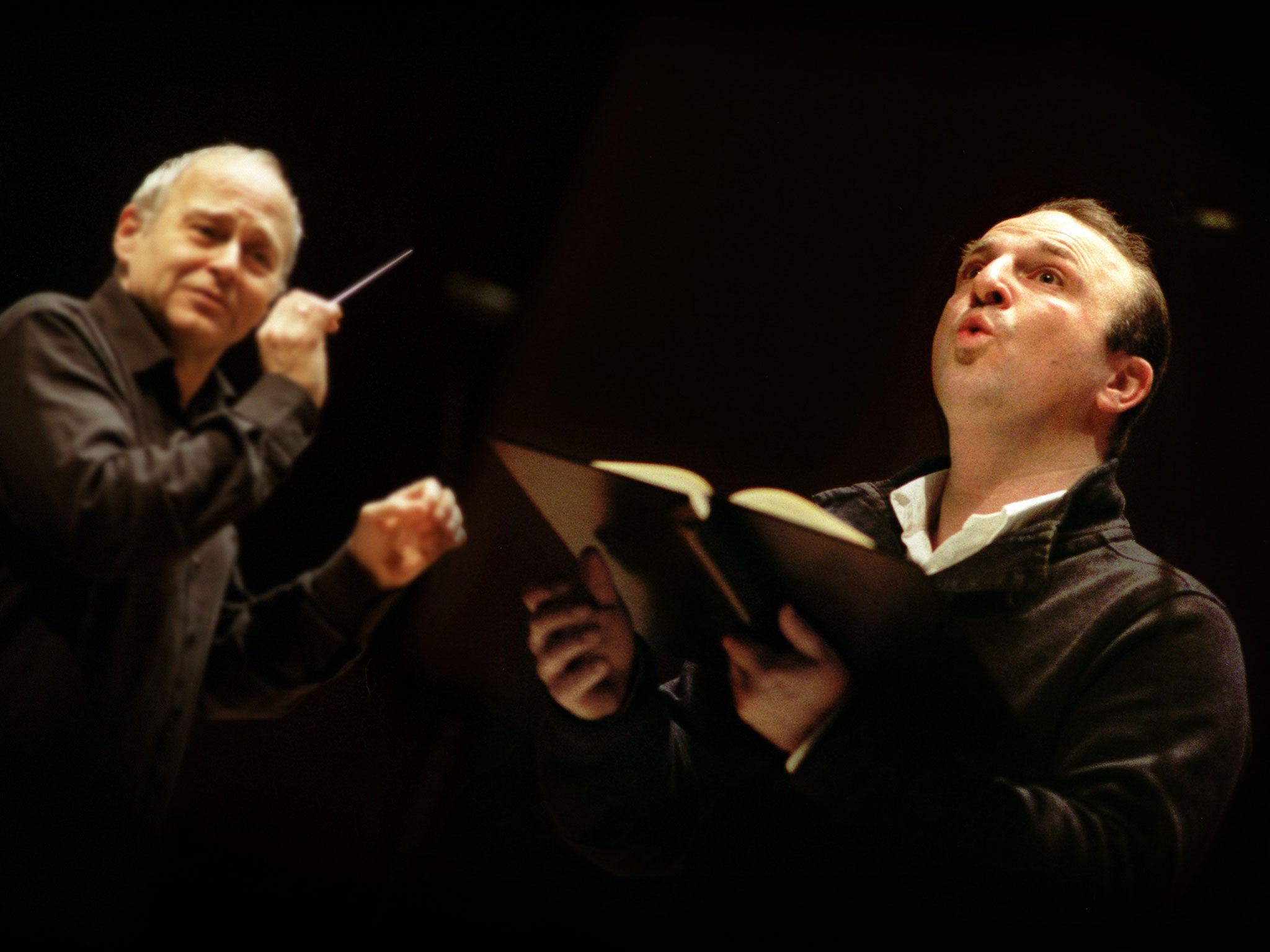IoS classical review: Orchestra of the Age of Englightenment/Fischer, Royal Festival Hall, London Academy Cello Ensemble, St James's, Piccadilly, London
And then there was music … (and Haydn's God proves a very jolly creator)

On the fourth day of the creation of the world, the chords in the orchestra that was first out of the slime, layer warmly, brightly and powerfully until the sun rises for the first time. That's Haydn's take on how we got here, at any rate, and in an infectiously good-natured and unpious performance of his oratorio by the Orchestra of the Age of Enlightenment under Adam Fischer at the Royal Festival Hall, it was a rather jolly God who forged Earth and sky in six days.
Creation builds unerringly, opening with an ear-twisting depiction of Chaos that is not of the crash-bang variety, but a creaking, unstable soup of sound that might give way at any moment. And as this mess resolves into The First Day and the separation of Earth and Heaven, so begins a journey to the light and the Christian Haydn's brilliant Thursday. But what a chirpy faith his was, providing, as listeners to the Radio 3 broadcast next Sunday at 2pm will hear, rich comic material, luxuriously milked by amiable Fischer and soloists Sophie Bevan, Andrew Kennedy and Andrew Foster-Williams, as the angels Gabriel, Uriel and Raphael, the soprano and bass Foster-Williams returning, hand in hand, in Part Three as Adam and Eve, before the Fall.
The most fun is to be had on the Sixth Day, with the noisy arrival of the animals, the lion roaring gruffly in the trombones, the insects scurrying itchily in the violins, the beasts of burden shaking the virgin soil. Then, in a wash of pure romance, up pop man and woman, and the first hint that there is no life without death, and that we are all a heartbeat – or a staccato violin passage – away from the grave.
Funny old business, playing the flute (and I speak from experience). One minute it's all bucolic bleating, the mere suggestion of countryside prompting an inevitable piping-up, as if every herdsman has three octaves in his pocket. The next, you represent all the birds of the air and the music of the spheres. OAE principal flautist Lisa Beznoziuk takes all this on the chin, popping out of the woodwork like a cuckoo, high above the orchestra, on the Fifth Day. For now she is the nightingale and lark in Sophie Bevan's lovely aria "Auf Starken Fittichen schwinget sich der Adler stolz" ("On mighty pens uplifted soars the eagle aloft"). This eccentric translation by librettist Baron Gottfried van Swieten, whose good intentions one cannot fault, is an accidental joy. Fischer, understandably, stuck to the baron's German text, based on the Bible and Paradise Lost. And that's fine, because it's all in the music, and you could not wish for a more heartwarming performance than this.
Those newly minted seasons sprang to life one by one at the first of six monthly concerts of music arranged for cellos only, and performed by the Academy Cello Ensemble – students and two teachers from the Royal Academy of Music, at St James's, Piccadilly. To attend this lunchtime concert was to open one's picnic and find it full of chocolates. But what is the collective noun for cellos? There ought, indeed, to be collective nouns for all the instruments of the orchestra – a glory of trumpets, a flight of piccolos, an anxiety of French horns ....
Professors Josephine Knight and Felix Schmidt led by example in music for eight cellos, six out of nine students joining them in turn for music by Telemann, Piazzolla and Fauré. Since four helpings of Piazzolla in one sitting is a toothsome experience, his Four Seasons in Buenos Aires were sensibly sandwiched around Fauré's Pavane, arranged by Patsy Gritton, and played at a dignified lick, more uplifting and less soulful than sometimes interpreted. And so Piazzolla's sweaty, prickly heat of Summer preceded the first nip in the air of Autumn, and long, exacting Winter heralded the pushing shoots and blithe blossom of Spring, arranger James Barralet taking a deserved bow.
Arguably, of all instruments, the cello is the most self-sufficient, mirroring so closely as it does the range of the human voice from bass to treble. If this watchful, musical, committed playing is anything to go by, the collective noun is clear – it's a song of cellos. And a lovely one at that.
Critic's Choice
Pianist Stephen Hough performs his own Piano Sonata No 2, notturno luminoso, inspired by the glare and loneliness of city life, in his programme at the Barbican Hall, London, on Saturday. The concert opens with two Chopin Nocturnes and includes Brahms’s Sonata No 3 and Schumann’s playful Carnaval, with its embedded coded references.
Subscribe to Independent Premium to bookmark this article
Want to bookmark your favourite articles and stories to read or reference later? Start your Independent Premium subscription today.

Join our commenting forum
Join thought-provoking conversations, follow other Independent readers and see their replies